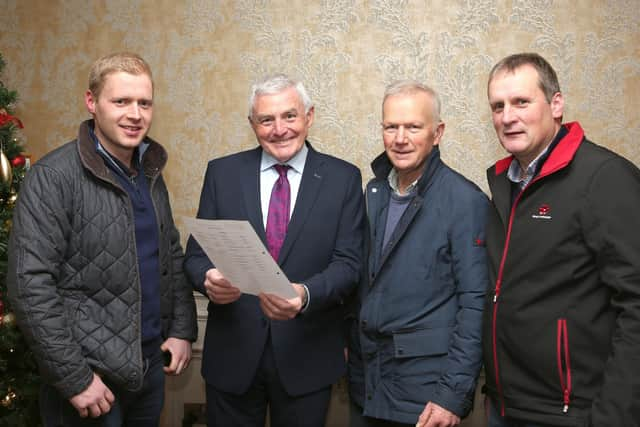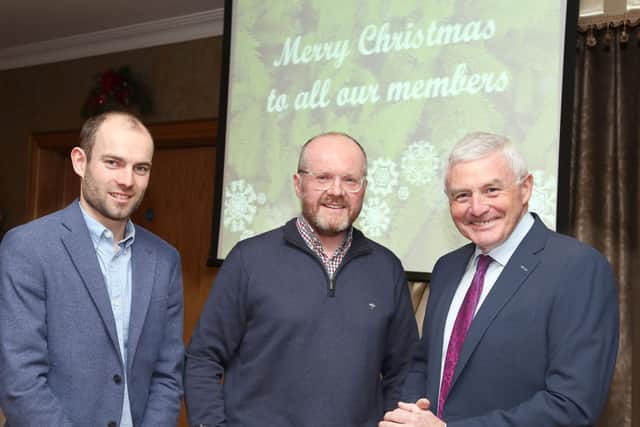Roland is new Chairman of Fermanagh Grassland Club for 2023
and live on Freeview channel 276
He was elected at the Club’s annual meeting in December held in the Killyhevlin Hotel. The new vice-Chairman is Robin Clements, a dairy farmer from Trillick. The outgoing secretary, William Johnston and outgoing treasurer, Philip Clarke were both re-elected. The new committee includes Trevor Dunn, John Egerton, James Murphy, Alan Warnock, David Foster and Alan Burleigh.
The election of office-bearers was conducted by Seamus McCaffrey, a well-known agricultural accountant from S.P.McCaffrey and Co, Omagh.
Advertisement
Advertisement
In his presentation, Mr. McCaffrey gave a presentation outlining a range of topics on taxation for farmers to consider such as expenditure on machinery, buildings and repairs; business structure, succession planning; inheritance tax, capital gains tax, discussion points and current news with tax.


On expenditure on buildings and repairs, Seamus explained how spending on some features of the farmhouse was eligible for reducing tax. In terms of plant and machinery, either new or secondhand, up to 100 per cent of expenditure on £1m spend per year up to March 31 2023 was allowable against tax in the first year with a reducing balance of 18 per cent per year.
Regarding agricultural buildings such as new beef house, Seamus said a slurry tank was fully allowance for tax purposes but generally a house above ground wasn’t except where the steel posts were bolted onto the tank or floor and concrete panels were used for walls instead of permanent shuttered concrete walls. There was also no issue with slats or internal fittings such as dividing gates and feeding gates.
He went on to discuss business structure and tax for sole traders, partnerships and company set ups, weighing up the pros and cons of each, depending on the family’s circumstances.
Advertisement
Advertisement
Succession planning was an important issue, he explained, saying it was not about retirement but the process of ensuring the continuity of the farm business beyond its current management and constantly evolved.


“It enables the compounding of wealth from generation to generation while maintaining family unity, individual growth and a sense of contribution. It is key to achieving sustainability and is about the farmer taking responsibility for the future,” explained Seamus.
He suggested techniques for succession planning include open discussion with family members, having two names on the business bank accounts, herd number and IACS and to make a Will which should be reviewed every three years. Mr.McCaffrey also referred to Inheritance Tax planning and Capital Gains Tax.
He said farmers should have discussions with their accountants, firstly on the accounting system used for relying information to HMRC, banks and tax planning.
Advertisement
Advertisement
He finally encouraged farm businesses to have up to date record keeping, predict cash flow difficulties early and have an estimate of tax liability before the end of the financial year and to take part in benchmarking with the Department and sourcing advice from www.hmrc.gov.uk/courses/syob/farm/index.htm